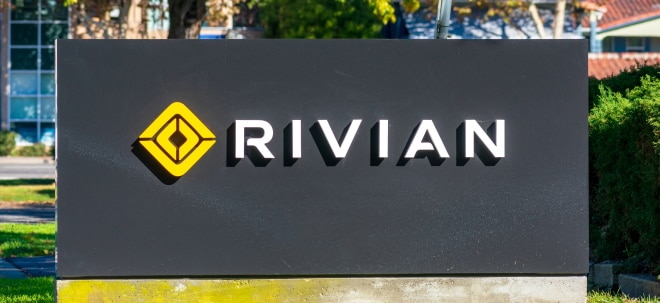NCCN Policy Summit Builds Bridges Between Primary Care and Oncology for Better Cancer Outcomes
National Comprehensive Cancer Network convenes meeting with multi-disciplinary experts to discuss ways to strengthen collaborative cancer care from early detection to survivorship.
WASHINGTON, May 6, 2025 /PRNewswire/ -- The National Comprehensive Cancer Network® (NCCN®) hosted an Oncology Policy Summit in Washington, D.C., today, focused on improving care coordination between primary care and oncology providers. The program featured a diverse group of patients, advocates, practitioners, and policy makers weighing in on how to improve cancer prevention, detection, treatment, and long-term survival.
Primary care providers and oncologists must work together to address needs of people at risk for and affected by cancer.Elizabeth Fowler, PhD, JD, of the Johns Hopkins Bloomberg School of Public Health, former Deputy Administrator and Director of the Innovation Center at the Centers for Medicare & Medicaid Services (CMS), provided a keynote address on future opportunities and challenges of value-based care. Kim Schrier, MD, of the U.S. House of Representatives (WA-08), shared her perspective as a pediatrician and lawmaker.
"Evidence-based prevention, screening, and treatment saves lives," stated Crystal S. Denlinger, MD, CEO, NCCN, who provided introductory remarks. "There are more cancer survivors alive today than at any other time in history. It's crucial that we do right by them and their loved ones by breaking down the silos in medical care, ensuring that people receive appropriate care for all of their medical conditions and age-appropriate screenings. Primary care providers and oncologists must work together to address the needs of people at risk for and affected by cancer in a holistic manner to ensure optimal outcomes."
NCCN publishes the NCCN Clinical Practice Guidelines in Oncology (NCCN Guidelines®), which cover the latest evidence-based, expert consensus-driven recommendations for cancer screening, risk reduction, treatment, and survivorship, available free at NCCN.org/guidelines.Versions of these guidelines designed for people facing cancer and caregivers are available for free at NCCN.org/patientguidelines. They can be used to help facilitate conversations between providers and patients.
"When we talk about cancer care, we often focus on the oncology specialists—and rightly so. But primary care is where prevention starts, where early signs are caught, and where patients turn for guidance through every stage. We're not just part of the conversation—we're essential to it," explained Stephanie Quinn, Senior VP, External Affairs and Practice Experience, American Academy of Family Physicians.
Summit speakers discussed challenges of care coordination, including when and how care is handed off from an oncologist back to primary care after treatment is completed and how to establish trust between patients and providers in today's busy climate.
"According to National Coalition for Cancer Survivorship's State of Survivorship Survey, only 19% of survivors surveyed are being taken care of by primary care providers (PCP) post treatment," said Veronika Panagiotou, PhD, Director of Advocacy and Programs, National Coalition for Cancer Survivorship. "Survivors stated that they have concerns about PCP's knowledge and ability to recognize cancer related reoccurrence, side effects and late effects. Cancer survivors are living longer than ever before because of innovative treatments and will continue to need quality care for the rest of their lives. There are opportunities for new primary care models that will support the 18.1 million cancer survivors of today and millions more in the future."
Panel participants noted that the difficulties in care transitions stem from how the models and systems for care were established. There was also a focus on particularly vulnerable patients, who may encounter societal issues that hamper their access to care.
According to David Garcia, PhD, FACSM, Associate Professor, Health Promotion Sciences, Mel & Enid Zuckerman College of Public Health, University of Arizona, Director, Zuckerman Family Center for Prevention and Health Promotion, Director, Nosotros Comprometidos a Su Salud: "There are several structural and systemic barriers to health care, which impact cancer prevention and survivorship, particularly for those who come from underserved and under resourced communities. There is a significant need to address these barriers by developing transformative care teams that understand the solution is not a 'one size fits all' approach. A team-based approach which accounts for an individual's demographic, social/cultural factors, and unique healthcare needs will ultimately help us take steps closer to achieving equitable health care access for all."
Speakers proposed creative solutions addressing the lack of common experiences and education that can cause challenges for communication between oncologists and primary care providers. Some suggested a separate specialty focused on cancer survivorship, similar to fellowships in geriatrics. They also noted the role professional societies can play in incentivizing education across specialties and state licensure processes that require hour-long courses on specific subjects.
"We need to work harder to bring PCPs and oncologists together, ideally in person through inter-professional meetings, at local hospitals, medical societies, or now virtually," said Larissa Nekhlyudov, MD, MPH, General Internist/Primary Care Physician, Dana-Farber Cancer Institute/Brigham and Women's Hospital. "This can be facilitated through accreditation policies, for example the American College of Surgeons Commission on Cancer; through funding requirements, for example the National Cancer Institute comprehensive cancer center designation; or through state based comprehensive cancer coalitions. These initiatives can promote inter-professional development, including education and training in content as well as communication and care coordination."
Panel members also highlighted the role that patient navigators can play in ensuring people have access to the care they need.
"Navigation is a critical component; potentially the only effective intervention to ensure care coordination across the cancer care continuum," explained Candice Roth, MSN, RN CENP, Executive Director, Academy of Oncology Nurse & Patient Navigators. "Imagine the oncology navigator as the spoke in the middle of a wheel addressing barriers to care, ensuring access to care and treatment, as well as needed education and resources as part of shared decision making. The Oncology Navigation Standards of Professional Practice include Interdisciplinary and Interorganizational Collaboration as one of the standards where oncology navigators promote, enhance, improve, participate, collaborate, and educate all members of the care team, including the primacy care team, patient, and caregivers."
Skyler Taylor, MD, Hematology/Oncology Fellow, Mayo Clinic concluded: "I am reminded of a quote from a dear mentor, Dr. Chintakuntlawar, about my role, 'A great doctor is composed of 40% compassion, 40% experience, and 20% knowledge.' We as a nation will only see more cancer as the population grows and ages. It is essential that our patients facing cancer have access to the high-quality care that they deserve. We as a profession need to have the compassion to advocate for this access outside the clinic. Consider joining and volunteering in an advocacy organization. Physician voices are strong, and even stronger in numbers."
The NCCN Policy & Advocacy Team will return to Washington D.C. in September for a Summit on the evolving artificial intelligence landscape in cancer care. That will be followed by a Patient Advocacy Summit in December focused on caring for veterans and first responders. Visit NCCN.org/summits to learn more.
About the National Comprehensive Cancer Network
The National Comprehensive Cancer Network® (NCCN®) is marking 30 years as a not-for-profit alliance of leading cancer centers devoted to patient care, research, and education. NCCN is dedicated to defining and advancing quality, effective, equitable, and accessible cancer care and prevention so all people can live better lives. The NCCN Clinical Practice Guidelines in Oncology (NCCN Guidelines®) provide transparent, evidence-based, expert consensus-driven recommendations for cancer treatment, prevention, and supportive services; they are the recognized standard for clinical direction and policy in cancer management and the most thorough and frequently-updated clinical practice guidelines available in any area of medicine. The NCCN Guidelines for Patients® provide expert cancer treatment information to inform and empower patients and caregivers, through support from the NCCN Foundation®. NCCN also advances continuing education, global initiatives, policy, and research collaboration and publication in oncology. Visit NCCN.org for more information.
Media Contact:
Rachel Darwin
267-622-6624
darwin@nccn.org
![]() View original content to download multimedia:https://www.prnewswire.com/news-releases/nccn-policy-summit-builds-bridges-between-primary-care-and-oncology-for-better-cancer-outcomes-302447595.html
View original content to download multimedia:https://www.prnewswire.com/news-releases/nccn-policy-summit-builds-bridges-between-primary-care-and-oncology-for-better-cancer-outcomes-302447595.html
SOURCE National Comprehensive Cancer Network



